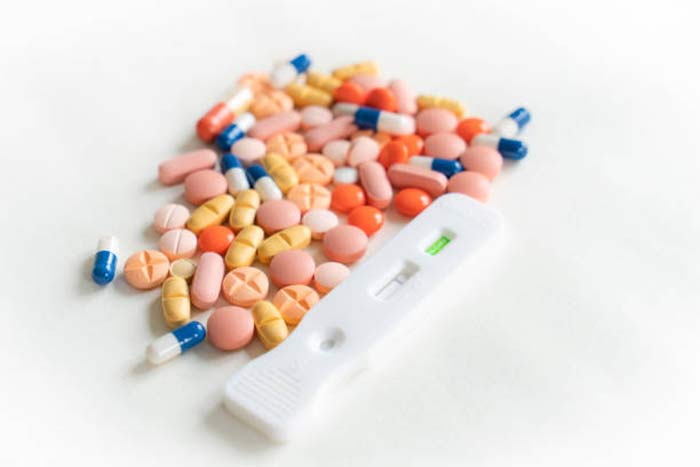Sleeping pills work by targeting specific pathways in the brain that regulate whether someone is awake or asleep.
Generally, they start to have an effect within 20-30 minutes of being taken. That means you should take them just before bedtime and get into bed immediately afterwards.
Zolpidem

Zolpidem (brands such as Ambien, Ambien CR, Edluar, and Zolpimist) boosts the activity of a chemical in your brain called gamma-aminobutyric acid or GABA to improve sleep. It also helps you to stay asleep and stop waking up during the night.
Zolpidem takes around 30 minutes to work, so take it just before you go to bed. It’s not recommended to take it with food as this makes it work more slowly.
Use zolpidem exactly as prescribed by your doctor and read the Medication Guide or Patient Information Leaflet that comes with your tablets if you don’t understand something. You can ask your pharmacist for a copy of these documents.
If you have a problem with drowsiness after taking zolpidem, or experience any other problem that is not explained above, tell your doctor as soon as possible. You may need to take a different sleeping pill or change your treatment plan, buy codeine phosphate 30 mg.
Benzodiazepines
Benzodiazepines act by activating a neurotransmitter called gamma-aminobutyric acid (GABA). GABA is a natural chemical in the brain that helps send messages to other brain cells. Taking benzodiazepines can calm the brain and reduce anxiety.
Typically, benzodiazepines have a sedative or hypnotic effect. Some are also anticonvulsants and muscle relaxants.
These drugs are used to treat various conditions, including anxiety, insomnia and epilepsy. They are among the most prescribed medications worldwide.
They can cause a number of side effects, especially if you use them long-term. Some of these effects include drowsiness, dizziness, confusion, slow heartbeat and difficulty breathing.
They can also be dangerous when taken with alcohol or other sedatives. In addition, they can be addictive if you take them regularly for longer than a few weeks. If you are worried about your benzodiazepine use, talk to your doctor. They can help you find alternatives or decrease your benzodiazepine dosage to lower the risk of addiction.
Antipsychotics
Antipsychotic medications work by blocking the effects of certain chemicals in the brain, which include dopamine, serotonin and noradrenaline. This can help to control symptoms of psychosis, including delusions, paranoia and hallucinations.
They can also be used to treat other mental health conditions such as depression and anxiety. They are often prescribed along with antidepressants and mood stabilizers.
Most people start feeling better after a few weeks of treatment, but it can take a long time to feel completely well. You should let your doctor know if you’re not getting better or have new symptoms.
You should also get a full medical checkup and be monitored for any serious side effects. Taking care of your physical health is important as schizophrenia and the medication used to treat it can increase your risk of diabetes, heart disease or other serious diseases.
You can also try a combination of therapies and support, including family therapy, peer support, school and job counselling and housing and employment supports. This can help you to manage your symptoms, feel more supported and improve your quality of life.
Over-the-Counter (OTC) medications
OTC (over-the-counter) medications are medicines that can be bought without a prescription from a doctor, nurse or pharmacist. These include pain relievers, cough suppressants, antihistamines and laxatives.
Most over-the-counter medicines are safe and effective when taken according to the label instructions. However, some are prone to abuse or can cause unwanted side effects.
Over-the-counter sleeping pills are a type of medication used to help people get a good night’s sleep. They usually work by acting on certain chemicals in the brain that help you fall asleep.
Diphenhydramine: This is a sedating antihistamine that is found in many OTC sleeping aids. It produces drowsiness and may also have other side effects, including dry mouth, blurred vision, constipation and urinary retention.
Doxylamine: This is another sedating antihistamine that is similar to diphenhydramine. It is often less effective and can have other side effects, such as headaches.
Conclusion:
As part of government policy to reduce the amount the NHS spends on prescriptions, it has stopped GPs, nurses and pharmacists from prescribing some OTC medicines. These include paracetamol and some vitamins and minerals.
